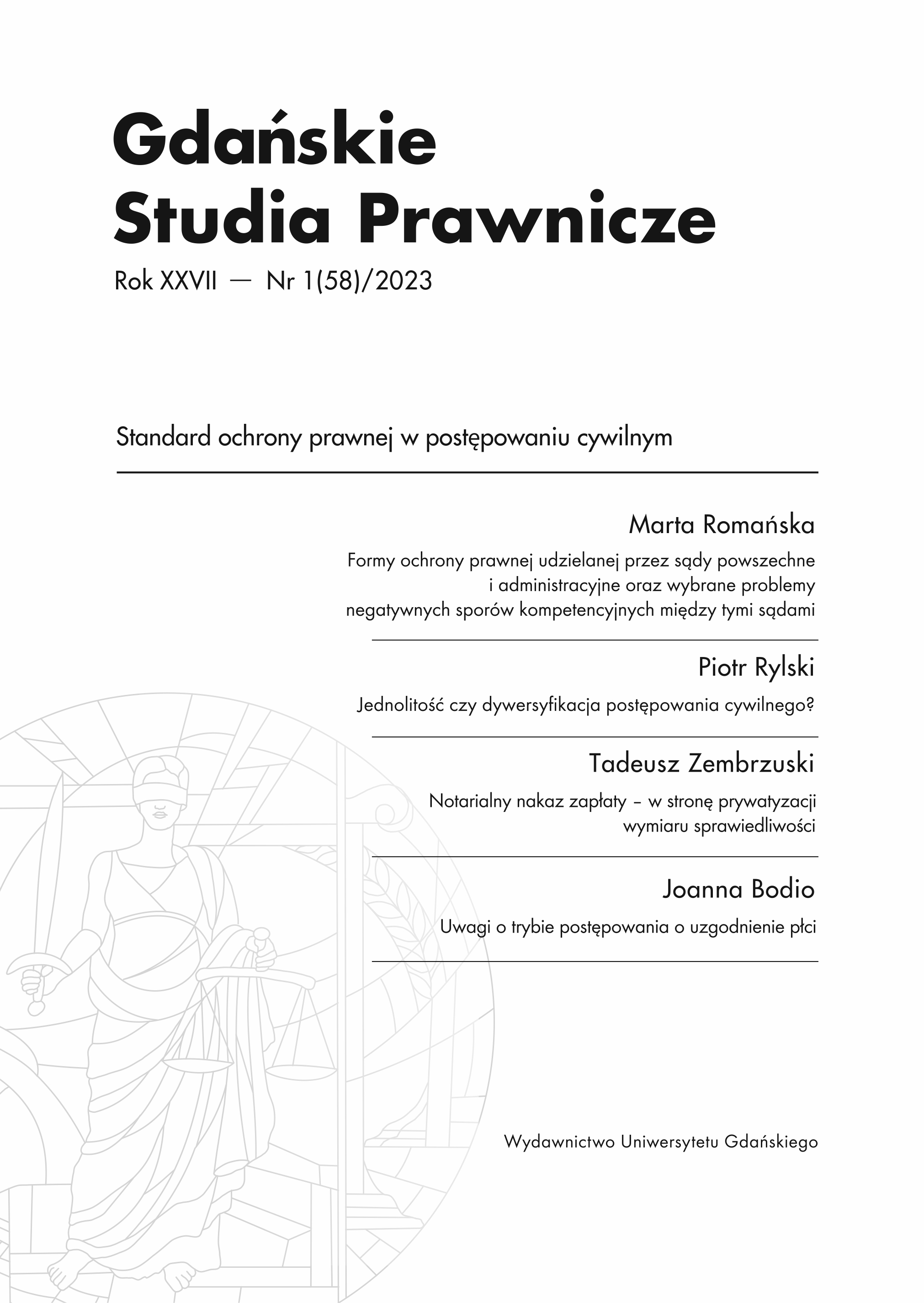Nieważność, czy bezskuteczność zawieszona umowy zawierającej klauzule abuzywne
Invalidity or Suspended Ineffectiveness of a Contract Containing Abusive Clauses
Author(s): Grzegorz SikorskiSubject(s): Law, Constitution, Jurisprudence
Published by: Wydawnictwo Uniwersytetu Gdańskiego
Keywords: indexed loan; denominated loan; franc loan; invalidity of the loan agreement; abusive provisions; ineffectiveness of the suspended loan agreement
Summary/Abstract: The glossed ruling is interesting for several reasons. Firstly, it is in line with the already adoptedjurisprudence, according to which the existence of unfair clauses in an indexed and denominatedloan agreement may be the reason for the court to declare it invalid. Secondly, the resolutionconfirms on the domestic basis that the possibility of maintaining the contract in force onthe basis of a consumer’s statement accepting the prohibited clause has been expressed manytimes in the judgments of the CJEU. Thirdly, it recognizes the right of the parties to mutual redressof claims arising as a result of establishing the non-existence of a legal relationship createdby an agreement containing abusive clauses.However, the Supreme Court indirectly accepted the need for the consumer to submit, inthe process, a declaration of willingness to benefit from the protection provided for by Directive93/13 or to resign from such protection. According to the Supreme Court, the submission ofsuch a declaration has the effect that only from that moment the contract, the effectiveness ofwhich has been suspended, should be considered ineffective. The adoption of such a structurehas its consequences in terms of the rights and obligations of both parties (limitation, interest).It is difficult to consider an agreement containing abusive clauses unsuccessfully suspended.The effect of ineffectiveness of a suspended contract is guaranteed in Polish law only to statutorysituations, provided for when the effectiveness of the contract depends on the consent ofa third party. The gloss also indicates the reasons why the CJEU considered it possible for theconsumer to submit a declaration regarding consent to use the protection provided for by Directive93/13. Both the adopted structure of suspended ineffectiveness and the jurisprudenceof the CJEU do not provide grounds for agreeing to share the position of the Supreme Courtcontained in the resolution of May 7, 2021 on the need for the consumer to submit a statementregarding the protection of the consumer, and even less on those described by The supremecourt effects such a declaration.
Journal: Gdańskie Studia Prawnicze
- Issue Year: 1/2023
- Issue No: 58
- Page Range: 237-248
- Page Count: 11
- Language: Polish

